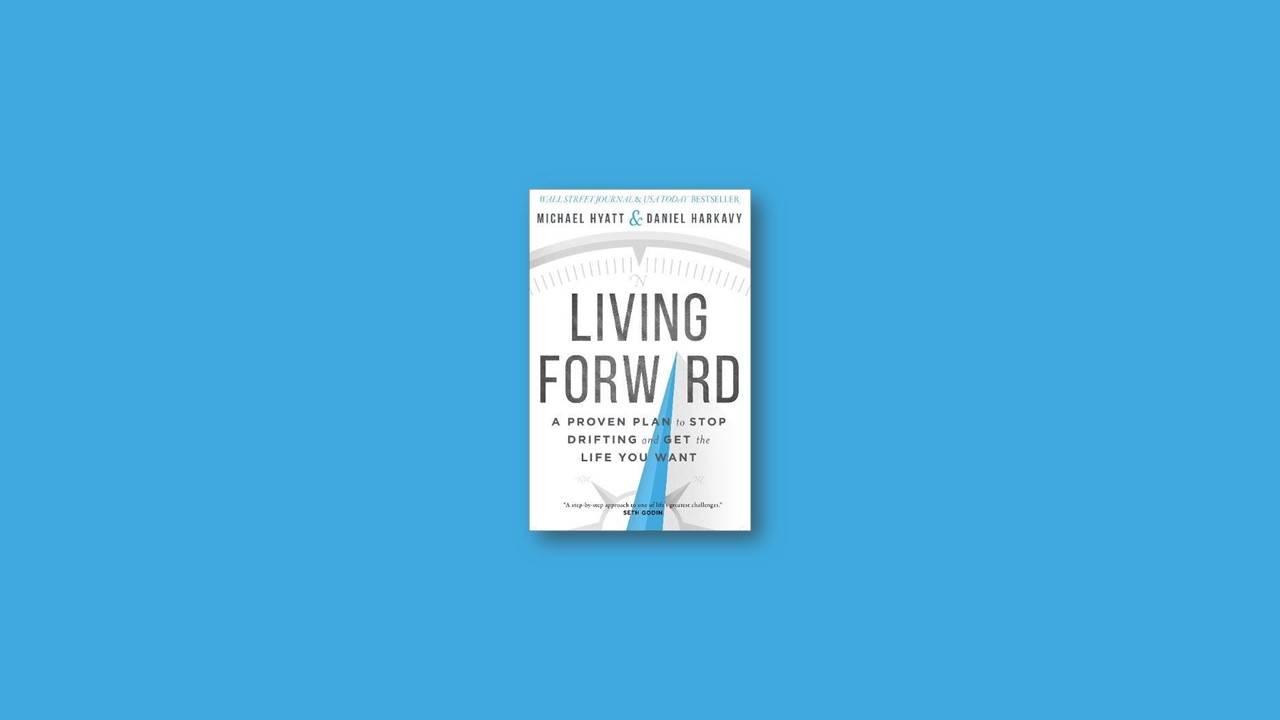All of us get lost from time to time. We think we know the right direction, but we drift off the path. We may not be sure how to get back on track. Or maybe we know exactly where we’re going, but we don’t like the destination!
In this book we want to provide the clarity you need to articulate a vision for your life—your whole life—and develop a plan for getting to a better destination. It’s all about being fully awake to the realities of our personal and professional worlds and using that fresh level of awareness to make better decisions and tell better stories with our lives.
#1 Understand the Mission
A Life Plan is a short written document, usually five to fifteen pages long. Yes, that’s right. Not a big, fat, three-ring binder with a hundred pages of detailed plans. No, just a short, written document that you can read with ease on a daily or weekly basis.
The Life Plan format is driven by three powerful questions.
Question 1: How do I want to be remembered? In planning anything, the best place to begin is at the end. What outcome do you want? How do you want the story to end? How do you want to be remembered when you are gone?
Question 2: What matters most? Maybe you have never given yourself permission to ask this question. For example: You know what’s important to your parents. You may know what’s important to your spouse. You most certainly know what is important to your boss. But what’s important to you? What matters most in your life? This is a question about priorities. No one else can decide what they are for you.
Question 3: How can I get from here to where I want to be? If you are going to improve your life and realize your potential, you will have to figure out where you are now; where you want to be; and how you get from one to the other.
Writing a Life Plan for the first time is the most difficult. But it will get easier over time. This is not something you write and stick on the shelf. The goal is not just to produce the document and go back to “business as usual.”
The real value is in the constant, never-ending improvement. Life Planning is something you will want to do for the rest of your life. In fact, it will become a way of life.
#2 Design Your Legacy
As we think about our legacy, we need to start with the end. This is obvious for other activities. The first thing you do in planning the family vacation, for example, is choose a destination. That determines everything else—the transportation required to get there, the clothing you will need to take with you, the accommodation options available, and the activities you might enjoy during your stay.
If it’s true for enjoying a getaway, it’s infinitely more so when it comes to mapping your life. What outcomes do you want? The end determines everything else—the characters you include in your story, the role they play in your life (and you in theirs), the projects you initiate, and the way you conduct your affairs
Imagine you could attend your own funeral and listen in to those conversations.
What would those closest to you remember about your life?
What stories would they tell one another?
Would those stories make them laugh, cry, sigh, or all three?
How would they summarize what your life meant to them?
Our days add up to a lifetime. At the end of that life, what will those closest to you say, what will they remember, how will they assess your legacy? The bad news is that once you’re gone, you won’t have any control over it. You will have passed on whatever you had—the good, the bad, or the ugly.
The good news is there’s still time. The future is full of possibilities. You can still influence the conversations that will happen once you are gone. You can shape them by the choices you make from this point forward.
#3 Implement Your Plan
Despite all of our gadgets and apps, we don’t have more time. Most of us are only getting busier. Most of us work considerably more than forty hours a week, handling calls in the car, emails at night, and projects on the weekend. One survey found that many professionals with smartphones engaged with their work more than seventy hours each week! That doesn’t even begin to factor in our family and social commitments.
Realistically, do you have time to keep up with what you have been doing plus build in additional time to achieve the Action Plans you created in your Life Plan? Probably not.
But before you know it, weeks turn into months, months turn into years. People go from one “temporary situation” to the next. Before long it’s permanent. Like the proverbial frog in the kettle, you’ve been boiled, one degree at a time.
What we desperately need is margin—time to breathe, to reflect, to act. How does the lack of margin make you feel? Anxious? Frustrated? Overwhelmed? Conversely, how does margin make you feel? Relaxed? Focused? Present? If you are to be successful with your Life Plan, you must create more margin so you have room for what’s important, not merely urgent.
Margin is possible. But it requires you to recognize the forces that threaten to gobble it up and then enact the appropriate countermeasures. It specifically requires that you learn and practice three skills: triaging your calendar, scheduling your priorities, and saying no to more requests.
Conclusion
We’re reminded of a story we heard about a wise old man who lived high in the Himalayan mountains. Periodically he ventured down into the local town to entertain the villagers with his special knowledge and talents. One of his skills was to psychically tell them the contents in their pockets, boxes, or minds.
A few young boys decided to play a joke on the old man and discredit his special abilities. One came up with the idea to capture a bird and hide it in his hands. He knew, of course, the man would know the object in his hands was a bird.
The boy devised a plan. Knowing the wise old man would correctly state the object in his hands was a bird, the boy would ask the old man if the bird was dead or alive. If the wise man said the bird was alive, the boy would crush the bird in his hands, so that when he opened his hands the bird would be dead. But if the man said the bird was dead, the boy would open his hands and let the bird fly free. No matter what the man said, the boy would prove the old man a fraud.
The following week, the man came down from the mountain into the village. The boy quickly caught a bird, cupped it out of sight behind his back, walked up to the wise old man, and asked, “What is it that I have in my hands?”
The man said, “You have a bird, my son.”
The boy then asked, “Tell me, is the bird alive or dead?”
The wise old man looked at the boy and said, “The bird is as you choose it to be.”
So it is with your life. The power is in your hands. You have been given a great gift—your life. What will you do with it?


